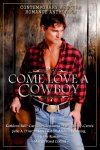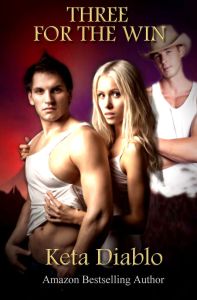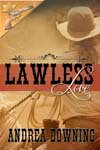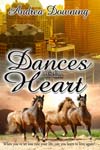 I’m happy to have here once more fellow author from Come Love a Cowboy Keta Diablo.
I’m happy to have here once more fellow author from Come Love a Cowboy Keta Diablo.
COME LOVE A COWBOY is now available at http://Come-Love-Cowboy-Kathleen-Ball-ebook/dp/B01D5876UK/
The dictionary says sultry means to be hot with passion or to be capable of exciting strong sexual desire. But sultry can also mean sweltering or torrid.
Have you ever heard a word that reminds you of a certain time and place, almost like a déjà vu? When I hear the word sultry it reminds of only one thing – To Kill A Mockingbird by Harper Lee. I know, it’s a silly analogy. Most of the time sultry should remind one of steamed heat or perhaps conjure an image of Marilyn Monroe standing over a street vent, her short skirt billowing about her.
Not me. When I hear the word sultry I’m taken on a journey back to my childhood, seventh grade to be exact. That year, my teacher placed a copy of To Kill A Mockingbird on my desk with a simple note, “Read this. I hope it opens many doors for you.”
At the time, I thought it a strange note, but then Miss Holmquist was rather strange. (Picture a short, stout woman with flabby upper arms that jiggled when she worked the chalkboard). Still, the woman piqued my interest with her odd message. How could books open doors? Why did I want to read about an old lawyer in a southern state I knew nothing about? And, what’s more, what kind of a man would name his children Jem and Scout?
I took the book home and several days passed before I opened it and read the first line, “When he was thirteen, my brother Jem got his arm badly broken at the elbow.” Hmm,
Ms. Harper Lee, whoever she is, has my attention now,” I said aloud. “Who is Jem and how did he break his arm?”
From that moment I was hooked – mesmerized by the story, in awe over the character names, Boo Radley, Aunt Avery, Dill, Atticus, and Calpurnia. I’m still in awe of the plot, the personalities, and the vivid neighborhood descriptions.
So why does the word “sultry” remind me of To Kill A Mockingbird? Because for the first time in my life I realized that by simply turning the pages, I could feel the sultry heat, taste the prejudice and agonize over the hatred between black and white.
“So what did you discover in this book?” Miss Holmquist asked two weeks later. I didn’t know where to begin. Should I tell her about the rollercoaster of emotions I went through while reading? Do I dare ask why the jury convicted Tom even though I prayed they wouldn’t? Or maybe I should tell her how brave Scout was when she diffused an explosive situation between Atticus and the bigots of the town with a simple, “Hey there, Mr. Ewell, how’s your boy, Henry doing?”
I didn’t ask her any of those things, but I did tell her about every sentiment I felt. Mostly I told her about the bitter taste in my mouth over a word called prejudice, and I told her I felt the hot, sultry sun of Maycomb County.
Some days, I wish I could go back to 7th grade and ask Miss Holmquist if she knew one day To Kill A Mockingbird would be one of the best-loved stories of all time, that it would earn many distinctions since its original publication in 1960. I’d ask her if she thought it would win the Pulitzer Prize one day and be translated into more than forty languages. And Miss Holmquist, do you think it will sell more than thirty million copies worldwide and will it be made into an enormously popular movie?
You know, I think Miss Holmquist would have said, “Yes, I do think Miss Lee’s novel will achieve all those things and more, but the most important thing, Keta, To Kill A Mockingbird will transport you to the sultry heat of the deep south and will take you to places you never dreamed existed.”
And I would say, “Thank you, Miss Holmquist.”
 Keta Diablo writes contemporary and historical romance. Her most recent story, Three for the Win, appears in COME LOVE A COWBOY, an anthology of 8 contemporary western romance stories.
Keta Diablo writes contemporary and historical romance. Her most recent story, Three for the Win, appears in COME LOVE A COWBOY, an anthology of 8 contemporary western romance stories.
You can find her on the Web at the following places:
Keta’s Keep: http://ketaskeep.blogspot.com
Facebook page: https://www.facebook.com/KetaDiablo.Author
Pinterest: https://www.pinterest.com/ketadiablo/
Twitter: http://twitter.com/ketadiablo
And don’t forget you can read Keta’s story in Come Love a Cowboy along with seven other stories for just 99 cents at http://Come-Love-Cowboy-Kathleen-Ball-ebook/dp/B01D5876UK/
















Pingback: A Sultry Childhood Journey . . . . « Words, Words, Words
Reblogged this on Aim for the Heart.
LikeLike
What a touching post, Keta. TO KILL A MOCKINGBIRD is one of my favorite novels, too. The word “sultry” conjures two images for me. My mom used that word to describe humid weather. In the movie, ‘Throw Mama From The Train,” Danny DeVito is trying to think of a word to describe the day for his book. After five or six words, his mother says “sultry.” Because of my mom, though, we sometimes say, “My, isn’t it sultry today?”
LikeLike
Sultry to me conjures hot, damp weather and southern women sitting on porches fanning themselves, a glass of iced sweet tea on a small table, kudzu in the trees. Come to think of it, the image most likely comes out of To Kill A Mockingbird, or maybe Faulkner?
LikeLike
To Kill a Mockingbird is one of my favorite books and one of the few I’ve read over and over again. Reading her words you feel the heat of a summer day and hear the sounds of a summer night. I love the movie too and have seen it many times. The casting was perfect. It’s hard for me to separate the book and the movie in my mind. Thank you, for posting this, Keta.
LikeLike
Like you, Patti, it’s difficult for me to separate book and film, the film captured Lee’s words so very well. You’re right–when you read that book, you can almost hear the crickets ‘chirping’ in the hot night.
LikeLike
If ever there was a book to start a reading and writing journey, To Kill A Mockingbird is it. How lucky you were Keta, to have such a fabulous teacher!
LikeLike
That’s what I thought! One can only hope we’d all have teachers like that.
LikeLiked by 1 person
It’s always fascinating to learn how authors first became enamored of the written word. There are few books better than TO KILL A MOCKINGBIRD to become inspired by.
LikeLike
I completely agree.
LikeLike
Great post. Great book. I hope there are teachers like that nowadays. Oddly, my love of words came from Jim Morrison, who took more pride in his one poetry book that was published than all his hit songs. But that’s another adolescent tale for another time.
LikeLike
Whoda thunk it! I’ll have to find that book.
LikeLike
It’s called The Lords and New Creatures. After he died, they published a couple of other books of his poetry. And of course, there is poetry in his songs.
LikeLike
Thanks!
LikeLike
Recently, a critique partner suggested I read The Great Gatsby to “hear” the voice of a seasoned journalist. She suggested it would make my current character come alive with authentic dialogue. It did that and I think this is another example of the person who could be named “Miss Holmquist” in my life. Thank you for a great interview.
LikeLike
Glad you enjoyed it, Judith–and, must say, Gatsby is definitely a great read — the narrators voice of Nick Carraway is very real.
LikeLike
The Great Gatsby is my favorite novel. But reading it didn’t inspire me to write. Instead, I was deeply intimidated by Fitzgerald’s graceful, compelling prose. I knew I could never write like that. I didn’t start writing fiction until I discovered genre fiction, historical romance in particular. I felt like that was something I could do, tell a story, since I don’t have the gifts to write literary fiction.
LikeLike
HI EVERYONE, UNFORTUNATELY, MY DEAR GUEST KETA DIABLO HAS HAD TROUBLE LEAVING REPLIES TO THE MANY WONDERFUL COMMENTS WE’VE HAD, BUT I’M PLEASED TO BE ABLE TO LEAVE HERE ONE GENERAL REPLY SENT BY HER:
Hi all,
Thank you so much for stopping by Andi’s site today! What a lovely author home it is. I must give a lot of credit to Miss Holmquist for opening a new world to me. I’m pretty sure she knew I had a ‘bent’ toward literature. Oh-oh…maybe it was that horrible story I wrote about “Santa Clause Lives With Me.” Thank goodness that one will never see the light of day.
Anyway, I read To Kill A Mockingbird every year, without fail, and I then I fall in love all over again. Ms. Lee was a genius when it came to settings. And what can I say about her characters? I felt I knew them, walked with them through the hot, dusty streets of Maycomb County. And how about the names she chose for her characters? They made them seem more than just fictional characters, right? Too bad Harper Lee didn’t continue on with her writing, but then maybe To Kill A Mockingbird was too tough to transcend, even for her.
Thanks again for stopping by, and I hope if you have a chance you’ll download COME LOVE A COWBOY. I think you’ll enjoy all 8 stories.
Here’s to many happy future reads,
All my best, Keta
http://ketaskeep.blogspot.com/
LikeLike